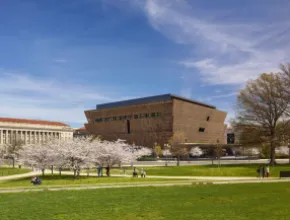WASHINGTON, D.C.
Tensions remain high in Washington, D.C., as Democrats and Republicans continue to clash over several key issues, and the clock ticks away toward the start of the next fiscal year at midnight, September 30.
While it's still unknown if the government will or won't shut down for the second time in less than two years, U.S. Travel Association economists revealed that a potential government shutdown would cost the U.S. Travel sector at least $185 million per day, as a result of temporary layoffs, reduced wages and fewer hours worked.
The U.S. Travel projection encompasses the closure of national parks and historic sites—upon which many regional economies greatly depend—and also the cancellation of both government travel and private business travel related to government projects.
"Political leaders need to understand that there are real-world consequences to these arguments that go on in the halls of power," said U.S. Travel Association President and CEO Roger Dow. "I realize that each side feels passionately about their respective position, but frankly there's just no excuse for letting the fiscal year expire without a budget when we know that people's very livelihood, their ability to feed their families, is at stake."
U.S. Travel's measurement of a shutdown's impact on the travel sector does not account for any potential effect on other travel-related agencies, such as Customs and Border Protection, the Transportation Security Administration, or the visa-issuing organs of the State Department.
"Though officials assured us at the time that the 2013 shutdown would not affect the work of those agencies, anecdotal evidence on that score was mixed," Dow said. "If we detect that a new shutdown is hurting those travel-related functions as well, we'll certainly stand ready to spotlight the fallout for policymakers."
The 408 national park sites are spread across every U.S. state and territory in both rural and urban areas. Many regional economies are almost entirely dependent upon visitors to nearby national parks to support restaurants, lodging establishments and other businesses, and the jobs they provide.
The shuttering of national parks due to the 16-day budget stalemate of October 2013 directly reduced travel spending by $680 million, U.S. Travel calculated, or nearly $43 million per day.





